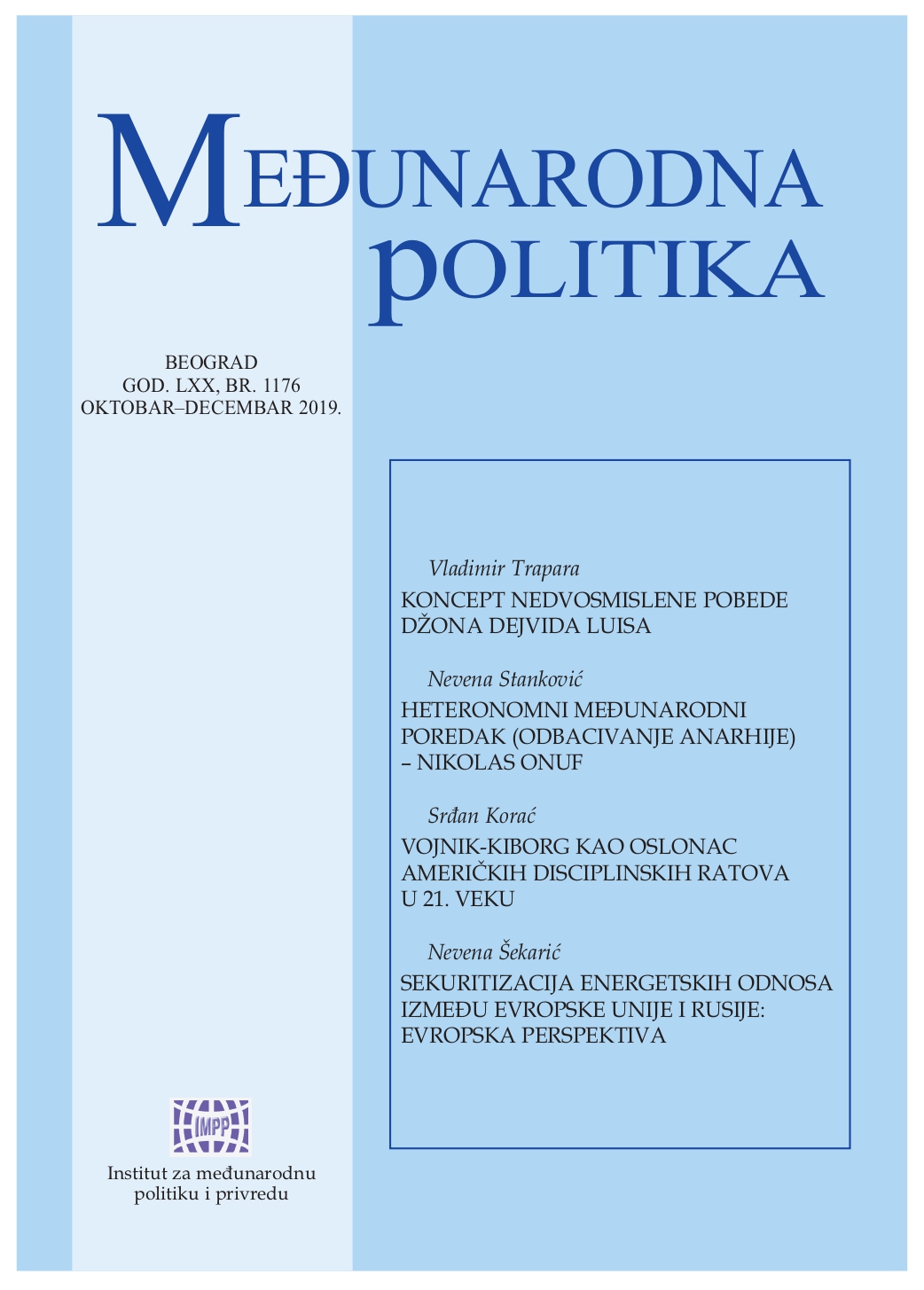Heteronomni međunarodni poredak (odbacivanje anarhije) – Nikolas Onuf
Heteronomous international state (rejection of anarchy) – Nicholas Onuf
Author(s): Nevena StankovićSubject(s): Political Theory
Published by: Институт за међународну политику и привреду
Keywords: international relations; anarchy; heteronomy; rules; condition of rule; social constructivism; Onuf
Summary/Abstract: The concept of anarchy is one of the cardinal categories in International Relations Theories, classic and contemporary ones. This paper analyses the theoretical framework of one of the three most influential social constructivists- Nicholas Onuf. Describing the world affairs as anarchical, which is a presumption in the works of almost all scholars (both realistic and liberal), Onuf takes the presumption of anarchy to be mistaken. Onuf analyses and rejects the existence of anarchy in international state, most commonly regarded as “the absence of world government” or “rule by no one in particular”. Onuf is firm in the claim that there is no logically necessary connection between the absence of ultimate authority and the absence of rules or order. In order to represent and explain the true international state of affairs, which he suggests is unrecognized because of the terminological and conceptual confusions, Onuf implies that more adequate term is “heteronomy”. Scientific justification of this paper is obvious due to the fact that it is about a phenomenon that is not researched enough, especially in domestic literature, and because a better understanding of this phenomenon could potentially change the current world affairs for the better.
Journal: Међународнa пoлитика
- Issue Year: 70/2019
- Issue No: 1176
- Page Range: 22-42
- Page Count: 21
- Language: Serbian

